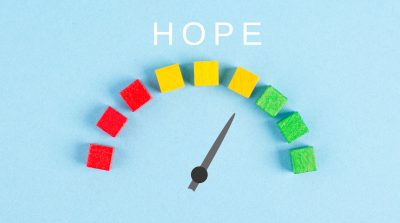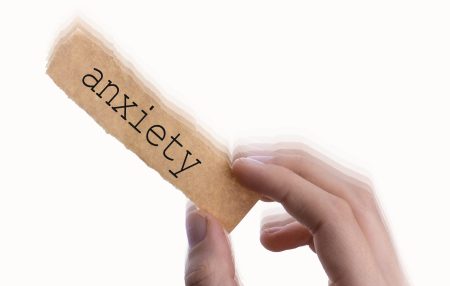9 Reasons When a Man Should Get Counselling

There is no definitive answer to this question, as it depends on each man’s unique circumstances, although counseling at any stage of a man’s life can be beneficial.
In general, counseling can be extremely helpful for men who are struggling to cope with:
1. New or Old Trauma
Counseling with a trauma informed therapist is of paramount importance in the process of recovering from trauma. When we experience trauma, it can deeply impact our emotional well-being, psychological state, physical health and overall quality of life. Trauma leaves profound imprints on our minds and bodies, affecting our thoughts, emotions, behaviors, and relationships.

A skilled and empathetic, trauma informed counselor can help individuals navigate the complex emotional terrain of trauma, offering insights, coping strategies, and tools to reduce and manage distressing symptoms. Counseling provides an opportunity to re-establish a sense of safety, trust, and control over one’s life, which might have been shattered by the traumatic event. This can empower them to face triggers and memories associated with trauma in a healthier and more constructive manner.
Therapy can also address critical aspects of trauma recovery creating opportunities to address and work through any negative beliefs or self-blame that may have emerged after a traumatic event.
Trauma can also place a strain on relationships. When men learn to effectively express their needs through counseling, it can support improving the relationships that may have been strained as the result of a traumatic event.
Facing the pain of trauma can be challenging. Recovery from trauma is not a linear process, and it can present challenges facing the pain associated with a traumatic event. However, men can gradually heal, grow, reclaiming their lives. Counselling can help a trauma survivor recognize their strengths, build resilience, and create a sense of hope for their future.

Dr. Dadson on Trauma
2. Feelings of Suicide
When a man is experiencing or expressing suicidal thoughts, counseling can be an essential and potentially life-saving intervention. Thoughts of suicide can be an indication of a man feeling hopeless, experiencing significant emotional distress, or despair, that are overwhelming.

A skilled and empathetic counselor can assess the severity of the situation, determine immediate safety measures, and develop a comprehensive treatment plan to address the underlying issues contributing to the suicidal ideation. They can help the individual navigate the complex web of emotions, thoughts, and circumstances that have led them to this point.
Exploring the underlying causes of suicidal thoughts may include exploring other past trauma, unresolved emotional pain, or identifying factors contributing to provide valuable insights and strategies for coping, healing, and rebuilding a sense of hope.
The therapeutic process may also involve developing a safety plan, identifying support networks, and referrals to additional resources and services.
Establishing a therapeutic relationship in counselling that is based on trust, empathy, and respect, can provide a vital source of support, encouragement and connection leading to feeling less isolated, and understood. During the recovery process these elements can be immensely comforting during times of crisis. Michael Dadson emphasizes “Counseling is important for men experiencing suicidal thoughts. Providing a lifeline and professional support is essential to ensure the necessary guidance is received.

3. Depression
Depression can be complex and even debilitating. Therapy can offer a valuable approach to treating depression and recovery.
In therapy, there is an opportunity to understand underlying causes and triggers of depression.

Cognitive Behavioral Therapy (CBT) is a highly effective approach in counselling. CBT can help identify and challenge negative thoughts that contribute to feelings of sadness, hopelessness, and even worthlessness. Focusing on the restructuring of unhealthy thought patterns and developing more adaptive, positive ways of thinking, individuals can experience a reduction in symptoms and an improvement in their overall mood.

Therapy also assists individuals in developing effective coping strategies.. These may include stress reduction techniques, relaxation and problem-solving skills. Counsellors can help individuals establish and promote self-care activities, healthy routines, and goal setting that enhance a sense of achievement and foster well-being.
Dr. Dadson further adds, “Without fear of rejection or criticism, therapy offers a compassionate and non-judgmental space, emotional support and validation when a man is affected by depression”.
4. Anxiety
Anxiety is a common mental health condition that can impact an individual’s daily functioning.
CBT a proven treatment for anxiety. In counselling examining and reframing negative self-thoughts, men can gain a more balanced perspective, that can reduce anxiety levels. Therapists work collaboratively with individuals to develop personalized coping mechanisms that help them navigate anxiety-inducing situations and regulate their emotions more effectively.

Therapy offers a platform to explore and address the underlying causes and triggers of anxiety. Through this process, individuals can gain insight into past experiences, traumas, or patterns of thinking that contribute to their anxiety. By understanding these root causes, individuals can work towards resolving and healing from them, which can alleviate anxiety symptoms.

In therapy, individuals can also learn practical skills to manage stress, set boundaries, and enhance self-care practices. These tools can be valuable in reducing anxiety levels and promoting overall well-being.
Dr. Dadson tailors his approach to each individual’s specific needs. Therapeutic approaches are integrated for each man’s symptoms and goals.
5. Stress
“Stress can be a double-edged sword, just like weight. A certain amount of stress can actually be beneficial, as it helps us develop resilience and psychological strength” notes Mike Dadson.
Stress can become excessive and overwhelming. Feeling weak and powerless is not uncommon. Personal lived experiences and the attached emotions are at the core of our work together in counseling” adds Dr. Michael Dadson.

6. Feelings of Emotional Disconnection:
Men are often particularly conditioned to prioritize logic and reason over emotions. As a result, men can have difficulty and struggle with acknowledging and expressing their emotions.

7. Grief
Grief is a deeply personal and individual experience. Counselling can be an invaluable resource to navigate the complex set of emotions associated with the grieving process. Therapy provides a safe and supportive space to explore, express feelings, thoughts, and memories related to loss. Intense emotions, such as anxiety, guilt, and depression, can often be associated with the grieving process.
A safe counselling space allows men to share their pain, confusion, anger sadness or any other emotion that may arise throughout the grieving process. Counselling also supports the development of coping mechanisms to navigate the emotional roller coaster of grief.
Additionally, therapy can assist men in understanding and processing the complex thoughts and that may emerge during grief. Questions of meaning, a purpose, and thoughts of a man’s own mortality are common. Through therapy, finding a sense of meaning and purpose in life despite their loss can support healing. Creating the opportunity for men to honor and remember their loved ones allows a men to express their love, gratitude, and share memories of a lost loved one. This process supports promote healing, and a sense of closure and connection.

Dr. Dadson indicates, “Counselling can help men who are suffering from grief by providing a safe and empathetic environment to process their emotions, honor a lost loved one, and navigate the practical challenges of grief. Learning to integrate the loss of their loved one into their lives allows men to embark on a healing journey.
8. Life Transitions
Therapy can be a valuable when a man is navigating life transitions. Starting a new job, becoming a new parent, the ending of a relationship, or dealing with retirement, can often leave a man feeling uncertain, anxious and even lost. Counselling can support a new transition, help men gain clarity, develop a deeper understanding of themselves and consider new goals.

Counselling can support men during life transitions is by helping them identify and manage the stress and anxiety that often accompany change. A skilled registered clinical counsellor can introduce stress management and relaxation techniques, to navigate the emotional challenges associated feelings of change and uncertainty. Counselling can also generate new problem-solving skills, a sense of self-confidence, and a growth mindset to support transformation during the change process.
In summary, Dr. Dadson observes, “Counselling can help men find a renewed sense of purpose and fulfillment in their lives when experiencing a life transition”.

9. Sudden Change
Sudden changes in a man’s life can wreak havoc on their mental health and emotional well-being. A job loss or relocation, incurring a serious injury or illness, separation or divorce, dealing with the loss of a loved one, or when a significant financial setback occurs, can all have a profound impact on a man’s identity, sense of stability and purpose. For men, these issues can also create feelings of anxiety, stress, isolation self-doubt, disconnection, or uncertainty.
Intense grief and a sense of emptiness can accompany the loss of a loved one. Feeling lonely, lost or rejected can happen when a man is going through an unwanted divorce or separation. Financial strain can create and anxiety or even depression. Relocation can lead to new adaptations for a new environment. Serious illness or injury may cause physical and emotional pain, as well as challenges in daily functioning.

Counseling can play a crucial role in helping men navigate these sudden changes and their emotional impact. Through counseling, men can express and process their emotions, such as grief, anger, confusion, or fear, in a safe and supportive environment. A skilled therapist provides validation, empathy, and guidance as men explore and make sense of their feelings, helping them move toward healing and acceptance.
Counseling offers an opportunity for men to explore their personal values, goals, and identity in the face of sudden changes. Therapists can help men clarify their values, reassess their priorities, and set new goals aligned with their evolving circumstances.
“Men can benefit from counselling at any stage of their lives, whether they are experiencing personal or relationship difficulties, going through a major life transition, or coping with grief or loss” declares Michael Dadson.

